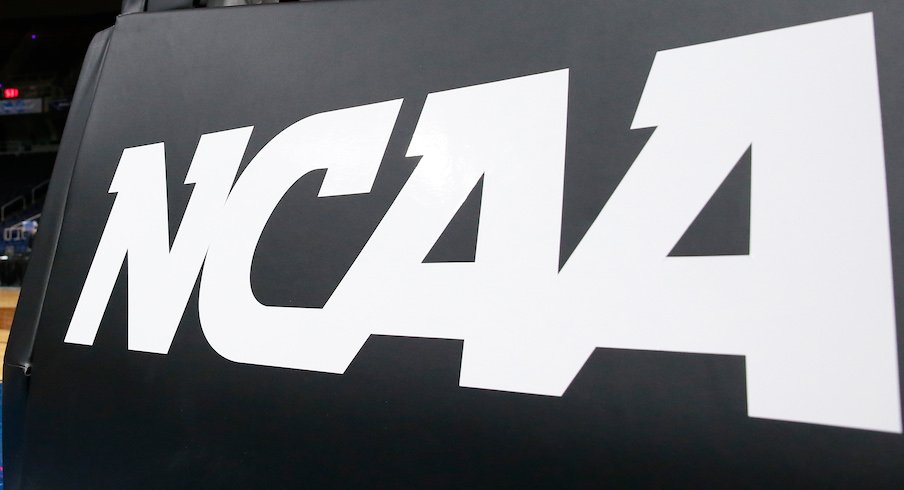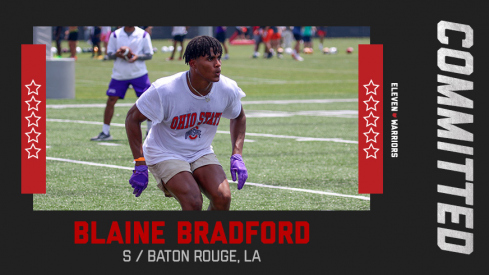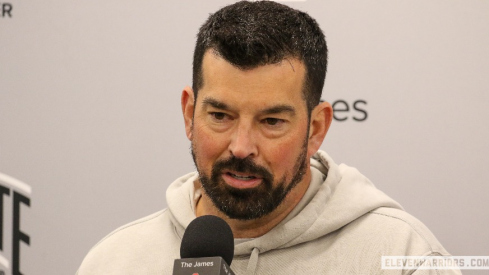Guidelines for the return of sports released by the NCAA on Thursday include recommendations for weekly COVID-19 testing for athletes and two-week quarantines for close contacts with positive cases.
In an extensive set of recommendations released on Thursday, the NCAA has encouraged conferences and schools to implement guidelines that include testing athletes within 72 hours of competition in high-contact sports, mandating 10-day quarantines for athletes and staff who test positive and 14-day quarantines for those who had close contact with others who tested positive, and requiring the use of face coverings whenever appropriate.
The NCAA is recommending that schools use conduct PCR (polymerase chain reaction) testing, the preferred method of testing, to test all athletes – and other “inner bubble” personnel for whom physical distancing, masking and other protective features are not maintained – each week during the season in high contact risk sports, including basketball, field hockey, football, ice hockey, lacrosse, rowing, rugby, soccer, squash, volleyball, water polo, wrestling.
For anyone who does test positive, recommendations include quarantining for at least 10 days and until their symptoms have subsided.
For anyone who is at high risk of exposure due to close contact with a positive case – which includes being with six feet for 15 minutes or direct physical contact with someone who had COVID-19 – 14-day quarantines are recommended because of the time it can take between exposure and someone testing positive for COVID-19.
The NCAA is also asking schools to require daily self-health checks for student-athletes and athletics personnel – which Ohio State is already mandating for all students, faculty and staff – and for everyone on the sidelines to wear face coverings to limit the spread of COVID-19. The guidelines also recommend that athletes should wear face shields, such as those that have been developed to be affixed to the face masks on football helmets, during practices and games.
While the guidelines released on Thursday provide the framework for colleges to take the necessary steps to keep athletes as safe as possible with a return to sports, NCAA president Mark Emmert acknowledged in Thursday's release that the trajectory of the COVID-19 pandemic must change if college sports are in fact going to return this fall.
Although testing and contact tracing infrastructure have expanded considerably, the variations in approach to reopening America for business and recreation have correlated with a considerable spike in cases in recent weeks. pic.twitter.com/clwHtsrOgh
— Inside the NCAA (@InsidetheNCAA) July 16, 2020
“When we made the extremely difficult decision to cancel last spring’s championships it was because there was simply no way to conduct them safely,” Emmert said. “This document lays out the advice of health care professionals as to how to resume college sports if we can achieve an environment where COVID-19 rates are manageable. Today, sadly, the data point in the wrong direction. If there is to be college sports in the fall, we need to get a much better handle on the pandemic.”
While Thursday's NCAA report acknowledges “the risk of an adverse outcome is low” for most younger adults who contract COVID-19, “asymptomatic spread of COVID-19 is of significant concern in the college sport environment” because “contact with that same asymptomatic/minimally symptomatic individual presents a potentially lethal risk for high-risk category individuals who are far more likely to have an adverse outcome if infected with the coronavirus that causes COVID-19.”
Thursday's recommendations also list five factors that should be considered as potential reasons to discontinue athletic activities: a lack of ability to isolate COVID-19 cases on campus, inability to perform testing when warranted, campuswide or local community test rates that are considered unsafe by local public health officials, inability to perform adequate contact tracing consistent with governmental requirements or recommendations and inability for local hospital infrastructure to accommodate a surge in hospitalizations related to COVID-19.
Conferences are not required to adopt the guidelines released by the NCAA on Thursday. According to Sports Illustrated's Ross Dellenger, however, the Power 5 conferences have been working in concert with the NCAA to develop a uniform set of testing and quarantine protocol that include many of the recommendations outlined by the NCAA. Individually, the American Athletic Conference announced Thursday that it will require all of its football teams to be tested at least 72 hours before each game.


